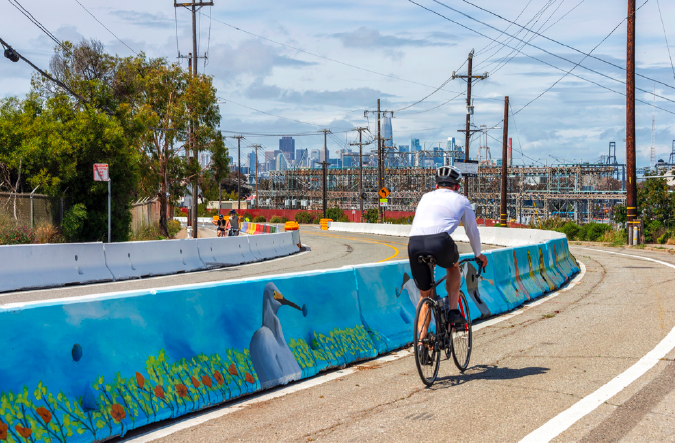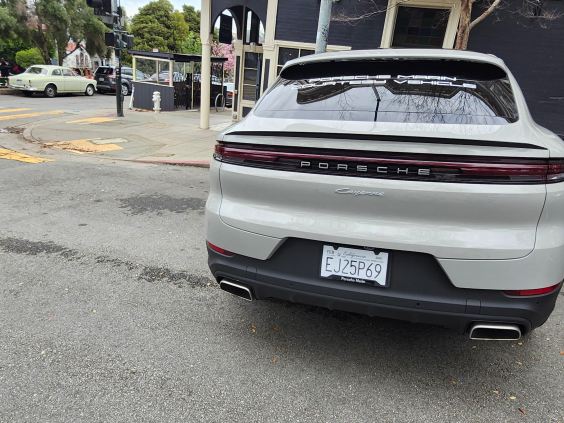Note: GJEL Accident Attorneys regularly sponsors coverage on Streetsblog San Francisco and Streetsblog California. Unless noted in the story, GJEL Accident Attorneys is not consulted for the content or editorial direction of the sponsored content.
A 2021 bill, S.B. 288, exempted sustainable transportation projects - walking, biking, and transit - from the California Environmental Quality Act (CEQA) on the logic that any project that improves sustainable travel and allows people to switch from driving is automatically beneficial for the environment. A CEQA exemption could speed up good projects that otherwise might be subject to costly delays or lawsuits - and given the crisis proportions of the climate situation, there is no time to waste.
Did it work as intended? This is an important question to ask right now, because the bill's author, Senator Scott Wiener (D-San Francisco), has introduced a new bill - S.B. 922 - that would make the exemptions permanent. S.B. 288 was given a tight window to prove its worth: it went into effect in January of 2021 and is scheduled to sunset in December of 2022.
Bay Area nonprofit policy think tank SPUR conducted an analysis of the bill's results within that short timeframe, and found that it did work as intended.
Making the exemptions permanent would improve the likelihood that more sustainable projects would be completed quickly, by providing greater certainty early on in the project planning, and reducing the amount of time planning takes.
This is no joke - CEQA requirements can cost hundreds of hours and thousands of dollars, and that's if everything goes well and nobody sues.
The SPUR white paper also recommends fine-tuning some of the criteria that qualifies projects for the exemption, requiring residential displacement analysis for large transit projects, and "selectively expanding" the exemption for other types of projects that discourage driving and reduce congestion.
The analysis, based on a statewide survey of transit agencies and a search of the Office of Planning and Research's web portal, found fifteen projects have been initiated or completed using the exemption so far, and another 38 projects for which agencies are considering using the exemption.
A little over half of those future potential projects would convert transit vehicles to zero-emission vehicles.
Most of the projects that have already used the exemptions are "small-scale improvements for walking and biking, including slow streets and active transportation projects." These are for the most part relatively low-cost interventions to reduce traffic volume and speed so that people can walk, bike, run and socialize safely during the COVID shutdowns.
An example highlighted in the report are several quick-build projects in the Bay View neighborhood of San Francisco, where a public process had already identified several safety concerns that residents had. To reduce speeds and protect bike riders and people walking, the city reduced travel lanes, installed k-rail barriers, and improved crosswalks. They also brought in local artists to paint the k-rails with bright murals, as seen in the lead photo.
"SFMTA staff typically seek a CEQA categorical exemption for small active transportation projects such as this," write the report authors.
However, this would have been difficult in the case of the Bayview since an existing environmental impact report (EIR) had already listed the Quick-Build Projects as part of a development in the area, giving the false impression that the bike lanes would contribute significantly to the environmental impact of the development. Without the S.B. 288 exemption, these projects likely would have been delayed while awaiting a separate, new study to show that they were categorically exempt.
The S.B. 288 exemption allowed for construction within a short time frame, ensuring that the projects came to fruition in a matter of months, not years.
"SPUR is cautiously optimistic that this law is improving transportation equity by opening up access to spaces for walking and biking, improving transit travel times and enhancing street safety," conclude the report's authors. This can help reduce pollution in neighborhoods where people are exposed to high levels of it, reduce dependence on fossil fuels - an "essential part of California’s commitment to advancing equity and environmental justice" as well as a key to fighting climate change.
But, they point out, there are still valid concerns about carving out CEQA exemptions, since the law is one of the few ways the public has to participate in decisions that directly affect them. This is especially a concern given the U.S. history of racism and disinvestment.
So far, "SPUR’s outreach to environmental justice organizations regarding S.B. 288 projects did not reveal any instances in which lead agencies used the exemption to skirt the public process," write the authors. But this will need to be closely watched.






